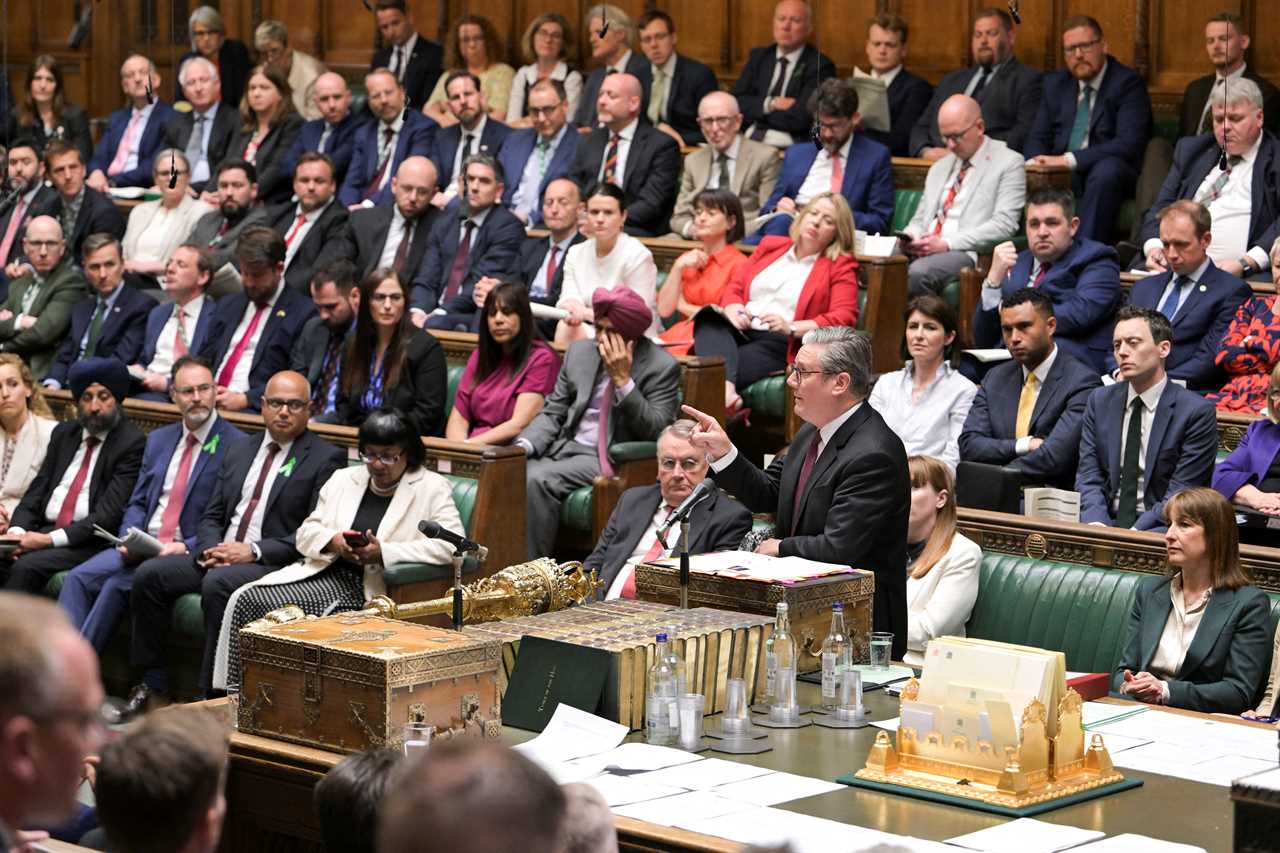
Amidst a backdrop of increasing discontent within Labour's parliamentary ranks, a strategic rebellion appears to be brewing as MPs grapple with the looming spectre of electoral defeat under Sir Keir Starmer's leadership. The party's moderate backbenchers, traditionally aligned with the party's directives, find themselves at a crossroads, contemplating public dissent on critical issues such as disability benefit reductions, immigration policies, and the persistence of the two-child benefit cap, even at the risk of losing party support.
The Wider Context: Navigating Values in Electoral Strategy
At the heart of this upheaval lies a deep sense of disillusionment among Labour MPs, particularly those representing constituencies in the so-called Red Wall, who perceive a narrowing pathway to re-election amidst growing public discontent with the party's stance on key socio-economic policies. The reluctance to toe the party line reflects a broader struggle within Labour to balance electoral pragmatism with ideological integrity, as MPs grapple with the ethical implications of their decisions in a political landscape increasingly shaped by shifting public sentiments.
Challenging Party Allegiance: The Dilemma of Conscience
Against the backdrop of contentious issues such as disability benefit cuts and the two-child policy, Labour MPs face a moral reckoning, torn between the imperative to uphold party unity and the ethical imperative to advocate for the most vulnerable in society. The growing momentum towards open rebellion underscores the deep-seated unease within the party, as MPs weigh the political risks of dissent against the moral imperative to challenge policies perceived as unjust or unsustainable.
Political Identity and Welfare Discourse: Tracing Labour's Evolution
The roots of this internal dissent can be traced back to a broader historical narrative of Labour's engagement with welfare policies, particularly in the aftermath of the austerity measures imposed during the Osbourne era. The enduring legacy of that period, characterized by what some describe as "performative cruelty," continues to shape Labour's internal dynamics, with welfare issues emerging as a focal point for MPs seeking to reconcile their political identity with the imperative of social justice.
Reform's Response: Navigating Political Turbulence
While Labour grapples with internal discord, Reform MP Lee Anderson's critique encapsulates the broader challenges facing the party, highlighting a crisis of confidence that extends beyond electoral considerations. The looming spectre of electoral defeat, compounded by policy disagreements, underscores the urgent need for Labour to navigate a complex terrain of competing priorities, where electoral strategy intersects with ethical imperatives and the demands of a changing political landscape.
In this climate of uncertainty and dissent, Labour MPs find themselves at a critical juncture, where the imperative of electoral survival converges with the ethical imperative to stand by their principles. The strategic rebellion brewing within Labour's ranks reflects a broader struggle for the soul of the party, as MPs grapple with the complexities of political allegiance, moral conscience, and the imperatives of electoral strategy in an increasingly polarized political landscape.






